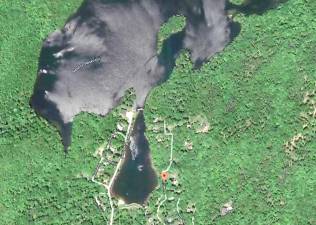Sparta must start from the beginning on Glen Lake dam assessments
To the Editor:
On July 21, the New Jersey Supreme Court unanimously decided that Sparta Township’s assessment of 58 property owners to pay for repairs to the privately owned Glen Lake dam was illegal. After four years of litigation, Sparta failed to prove that the assessed properties benefited from the repairs to the dam, as required by the relevant statute.
As one of the assessed homeowners, and a plaintiff in the challenge to this illegal assessment, I’d like to provide some background on how the flawed assessment process played out from a property owner’s point of view. Membership in the private Glen Lake Beach Club is not determined by lake rights granted in a homeowner’s deed, but by a perimeter description contained in the by-laws of the Glen Lake Beach Club that describes which properties are eligible to join the Beach Club.
When my husband and I purchased our home on Glen Road in 1999, our property had no connection to Glen Lake at all. The perimeter description in the Beach Club by-laws in effect in 1999 excluded properties located to the south of Glen Road. In 2003, the Beach Club amended the perimeter description to include 11 properties, including ours, to the south of Glen Road. They did not inform my husband and me as the owners of one of the affected properties. We did not have any chance to decline this unwanted “privilege.” We never joined the Beach Club or used the lake. We cannot see the lake from our house and cannot safely access the lake by foot as it is located across a busy, narrow county road and quite a distance away.
In 2011, the Beach Club and Sparta Township entered into a contract whereby Sparta would become a co-borrower on a loan from the New Jersey Department of Environmental Protection to fund the dam repairs. Sparta agreed to impose an assessment on property owners whose properties were located within the expanded perimeter description. Our property was included on this list without our knowledge or consent.
My husband and I first learned about the proposed assessment in 2012, when the Beach Club finally sent us a notice stating that Sparta would be assessing those properties “within the Glen Lake filed map area.” This didn’t concern me because I was aware that our property deed did not reference any filed map. As it turned out, the Beach Club ultimately could not locate any such referenced map in Sparta Township or Sussex County records.
In 2016, Sparta started public hearings on the proposed assessment. At the first public hearing I was told by the Beach Club’s attorney that properties which were subdivided out of a tract conveyed by a 1945 deed from Eva Hollinshed to Lakeland Investment Co. were granted lake rights to Glen Lake. After doing some research, I determined that our property was not subdivided out of the Hollinshed tract, and that neither our deed, nor any deed in our chain of title, contained lake rights to Glen Lake. After I pointed these facts out to the Beach Club’s attorney, with a copy to the township, she responded by stating that the Beach Club’s position was that “all properties that have historically been offered rights to Glen Lake and the right to join the Glen Lake Beach Club,” based on the perimeter description contained in the Beach Club’s by-laws, would be assessed.
The Beach Club, through their attorney, represented in writing to both the township attorney and one of the other plaintiffs in this case that the perimeter description had never been revised and that all of the assessed properties had always been eligible for membership. When I pointed out to both the Beach Club’s attorney and the township council that perimeter description had indeed been revised and that our property had not “historically” been offered lake rights and the right to club membership, I received no satisfactory answer.
The Kafkaesque end result was that our property was assessed almost $14,000 to pay for repairs to a dam owned by a private beach club of which we have never been members, simply because the Beach Club, without our consent and without notice to us, decided to add our property to their perimeter description. The assessor’s report that the township council relied on to justify this assessment offered no evidence that the repairs to the dam benefited our property in any way, according to the NJ Supreme Court opinion. Indeed, according to a May 4, 2016, report titled “Glen Lake Dam Rehabilitation Project: Tax Impact if No Lake,” obtained from the township via an OPRA request, the only properties that reap a benefit from the repaired dam are the 17 properties closest to Glen Lake.
To add insult to injury, the Beach Club can change their by-laws at any time to exclude our property from eligibility to join. Since we have no lake rights in our deed, we would have no guaranteed recourse and could be stuck paying a very expensive assessment but still have no right to use the lake.
The township must start from the beginning to determine which properties will be assessed. Hopefully, the assessment will be fairly imposed only on those properties that truly benefit from the dam repairs. Otherwise, Sparta will simply end up wasting more money on further litigation.
Mary Gardner
Sparta
